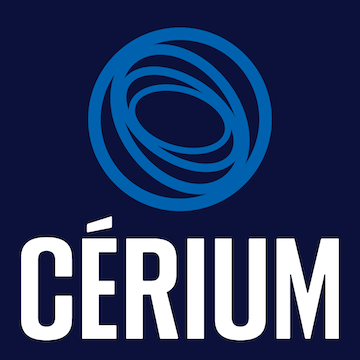Experts in: Social movements
CAOUETTE, Dominique
Chercheur, Professeur titulaire
DUFOUR, Pascale
Professeure titulaire, Chercheuse
- Comparative politics
- Political sociology
- Social movements
- Collective action
- Gender and politics
- Canada
- Canada (Québec)
- North America
- Europe
- Conflict resolution
- International relations
- Political representation
- Transnationalism
- Democratic transition
- Social and political theory
- Environmental issues
- Environment
- Feminist theories
- Spain
- Democracy
- Urban policy
- Diet
GRONDIN, David
Professeur titulaire, Chercheur
- Surveillance studies
- Political communication
- Mobility studies
- International communication
- War in mass media
- Security, international
- Globalisation in mass media
- American studies
- Risk Management
- Digital culture
- Border security and customs
- Borders
- Mobilities research
- Mobility
- Algorithmic governmentality
- Nouvelles technologies
- Artificial intelligence
- Popular culture
- Global Governance
- Empire and imperialism
- Cultural studies
- Visual culture
- Media Studies
- International relations
- Social movements
- Migration
- American politics
- United States
- North America
- Canada
- Modern Times
I joined the department in 2017, after spending eleven years as a professor in the School of Political Studies at the University of Ottawa. I am happy to have found a new terrain in communication and media studies and to have started a new chapter teaching international communication, media studies, political communication, and popular culture at Université de Montréal.
I am first and foremost fascinated by the relationship between culture, science, media, technology and society, power/knowledge, militarization, and war and security in the US context and in the geopolitical frame set by globalization. My current work brings me to consider issues dealing with the security/mobility nexus and the redefinition of citizenship in the digital age, notably as it relates to borders, surveillance, and governance.
Through communication, we are, consciously or unconsciously in relation with the world. I am heavily interested in our relationship with digital governance – and by extension, to digital media. I thus pay a particular attention to communication infrastructures in security governance, which leads me to study new forms of surveillance in the surveillance society enacted by the digital. As digital media and new media, algorithms are a privileged topic to capture the media infrastructures for the communications they embody as well as to what they make possible for media technologies governing subjects and controlling spaces.
My current research coalesces around the forms of surveillance three main areas of inquiry: 1) the surveillance of mobilities, algorithmic security, and techno political infrastructures governing North American borderlands; 2) the militarization of everyday life, the surveillance society, and the culture of the US national security state; 3) US popular and media cultures, with an emphasis on war and surveillance on the small and big screen and another on comedy, infotainment media, and televisual satire.
In my research, I both mobilize communication and media studies, notably popular culture, cultural industries and cultural studies scholarship, as well as issues of mobility and surveillance, with a reflection that addresses power manifestations in communication and the effects of communications. As international communication, media cultures, political communication, popular culture, cultural studies, and new media studies constitute my main research expertise in media studies and communication, my work is well served by my interdisciplinary bent and undisciplined perspective that draws upon the fields of international relations, international political sociology, political geography, political anthropology, American studies, security studies, and science and technology studies.
At Université de Montréal, I share my research time between the Laboratory on Popular Culture, Knowledge, and Critique (CPCC), the International Center on Comparative Criminology (CICC), and the Montreal Center for International Studies (CERIUM).
HAMZAH, Dyala
Professeure agrégée
- Ottoman Empire
- Public space
- Social movements
- Nationalism
- Public Opinion
- Pan-Arabism
- Pan-Islamism
- Religion
- Arab renaissance
- Arab world
- Colonialism
- 18th century
- 19th century
- 20th century
- Modern Times
- Middle East
My research interests concern the processes of reform and centralization in the Arab provinces of the Ottoman Empire throughout the 19th century (Egypt, Syria, Iraq, North Africa), from a cultural and social perspective. The central role of the press and associations in the emergence of a public space during the Arab Renaissance and the issues of education and citizenship in the colonial and post-colonial periods are central to my research.
At the same time, my work bears on the symmetrical processes of professionalization and the popularization of Islamic expertise in the 20th century. More specifically, I am interested in the institutional and curricular development of mosque-universities such as al-Azhar, Zaytuna and Qarawiyyin, from the 18th century until their nationalization in the 1960s, and also in the legacies and uses of Islamic historiography, philosophy and law in the contemporary period, particularly in nationalism and Islamism.
My current research aims to contribute to the cultural history of Arab nationalism and to define its key institutions: volunteer associations and secret societies; scouting movements; school textbooks.
TANNER, Samuel
Chercheur, Professeur titulaire, Directeur de département
- Impact des technologies sur la sécurité
- Extrémisme violent
- Social movements
- Cultures numériques et sécurité
- Nouvelles technologies
- Information technology
- Contrôle, organisations et cultures technologiques
- Prévention de l'extrémisme violent
